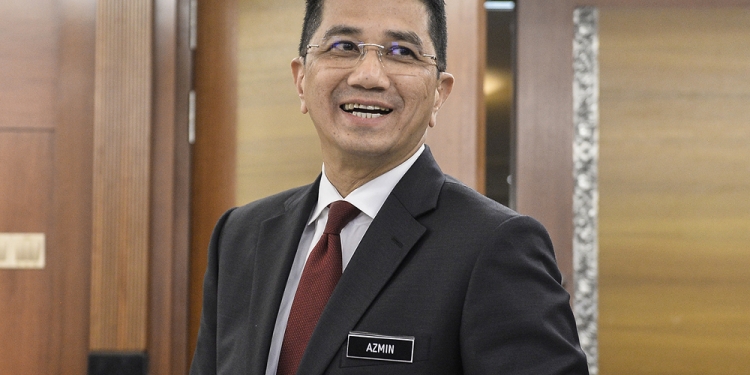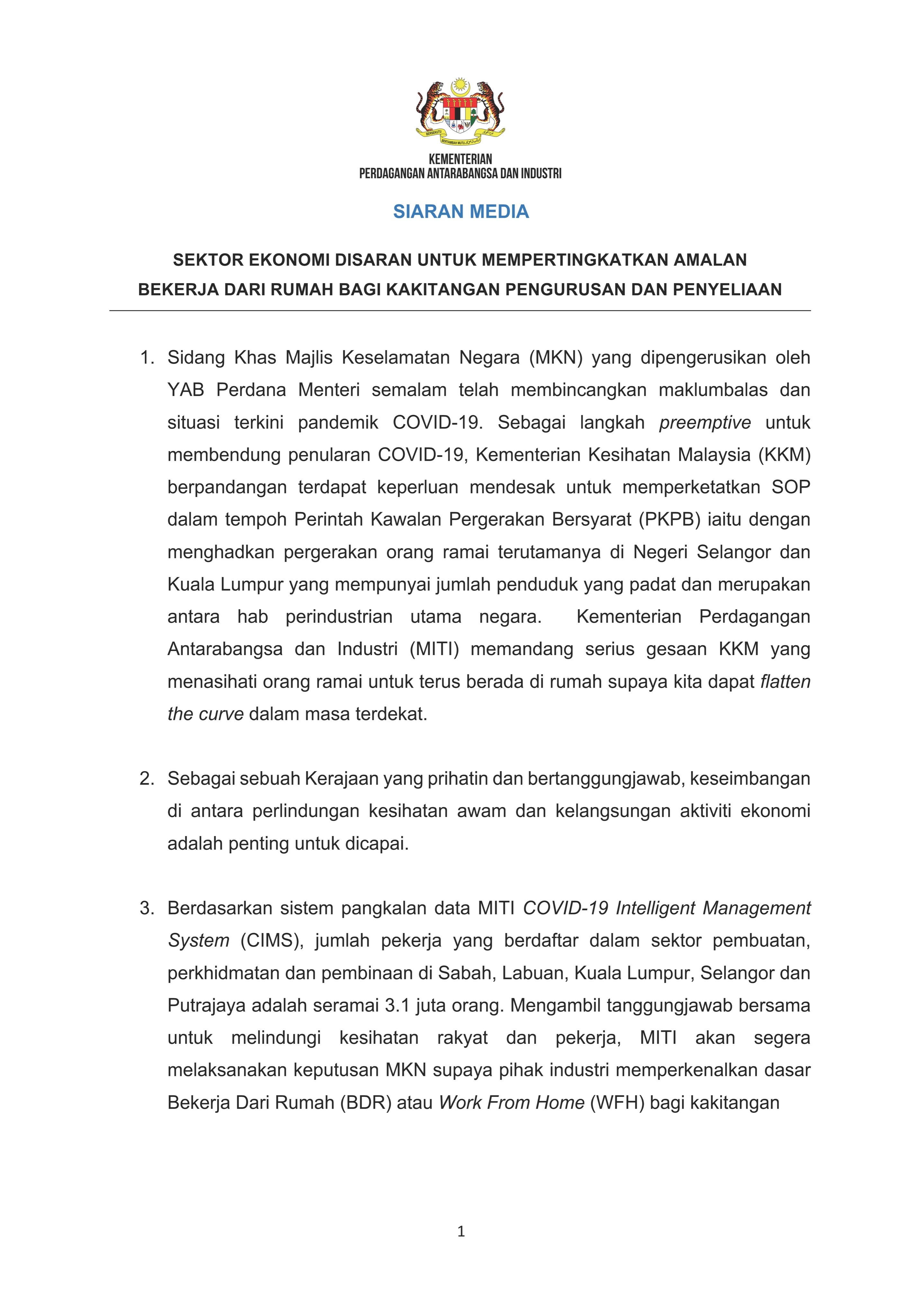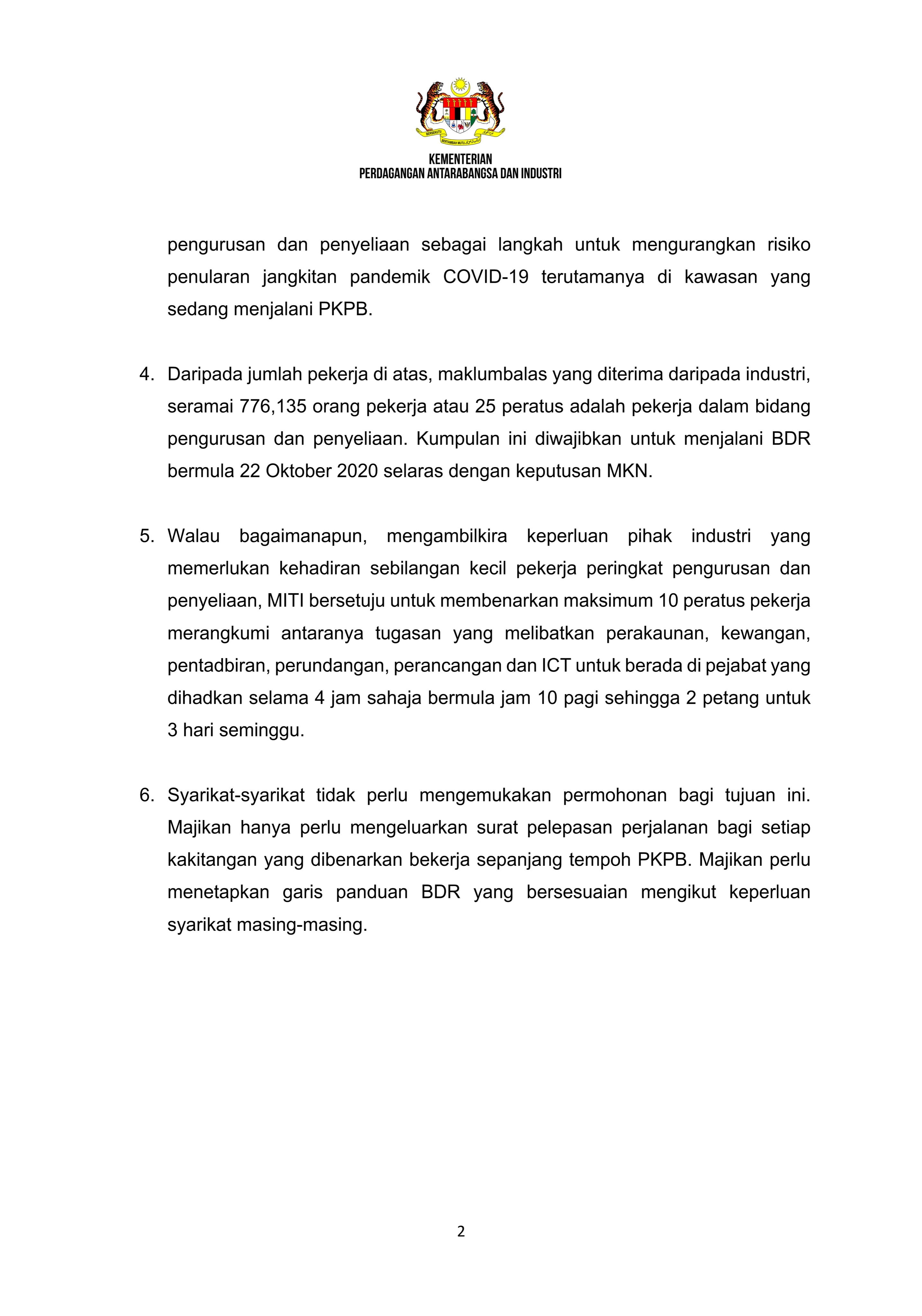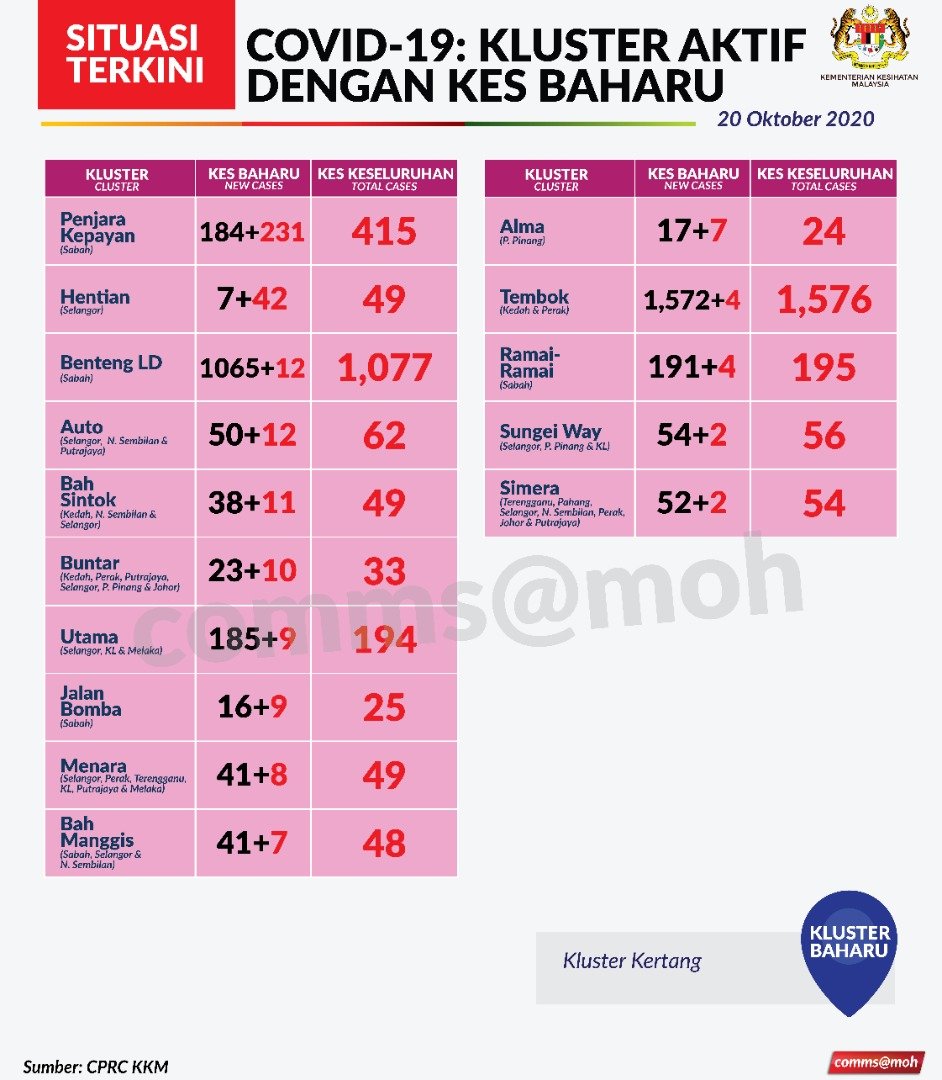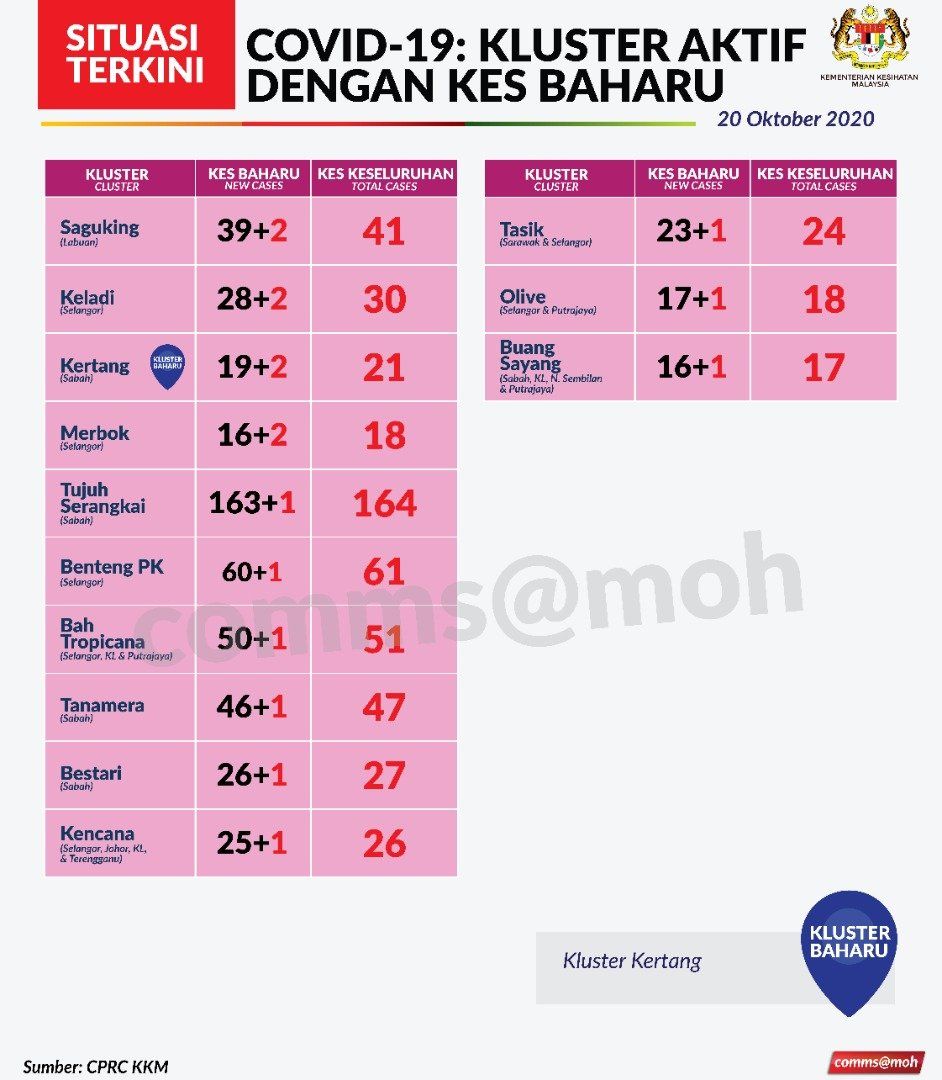[ UPDATE 21/10/2020 19:58 ]: Senior Minister Datuk Seri Ismail Sabri Yaakob clarified that swab tests for Malaysians residing in red zones are not mandatory but encouraged. More details here.
===
[ UPDATE 21/10/2020 14:00 ]: MITI has issued an infographic for the WFH order. It clarified that WFH is not applicable to operational staff. More details here.
===
The National Security Council had announced a Work from Home (WFH) order for employees of management and supervisory roles in CMCO areas that will be enforced from tomorrow, 22nd October 2020. This will impact workers in Sabah, Labuan, Selangor, Kuala Lumpur and Putrajaya. Minister of the International Trade and Industry (MITI), Mohamed Azmin Ali has provided more details which highlights the reduction of employees coming to office and permitted working hours.
According to Azmin Ali’s tweet, MITI will allow a maximum of 10% of employees which covers accounts, finance, administration, legal, planning and ICT to be at the office. The working hours at the office will be limited to 10am to 2pm for 3 days weekly. That’s a total of 12 hours per week.
The official statement stated that based on the MITI COVID-19 Intelligent Management System, there are a total of 3.1 million workers in Sabah, Labuan, Kuala Lumpur, Selangor and Putrajaya. To reduce the spread of the coronavirus, they will implement the NSC’s WFH order at CMCO areas. From the 3.1 million workers, 776,135 or 25% are management and supervisory roles.
Companies are not required to apply for permission from the Ministry. However, they would need to issue authorisation letters for each employee that are permitted to work onsite during the CMCO period.
Unfortunately, there’s no mention of a swab test. During yesterday’s announcement, Senior Minister Datuk Seri Ismail Sabri Yaakob had mentioned that employees that are required to work onsite must undergo a COVID-19 swab test. He also mentioned that the cost for testing will be paid for by PERKESO for contributing employees.
Malaysia has been recording more than 800 new COVID-19 cases daily for 4 straight days. According to the Ministry of Health, 32 out of 87 active clusters are in the Klang Valley. The Utama cluster is currently the largest cluster in Selangor with 194 positive cases. It also added that a 1/3 of cases in Selangor involved cases that have recently returned from Sabah, while 2/3 are from community infections.
[ SOURCE, IMAGE SOURCE ]

